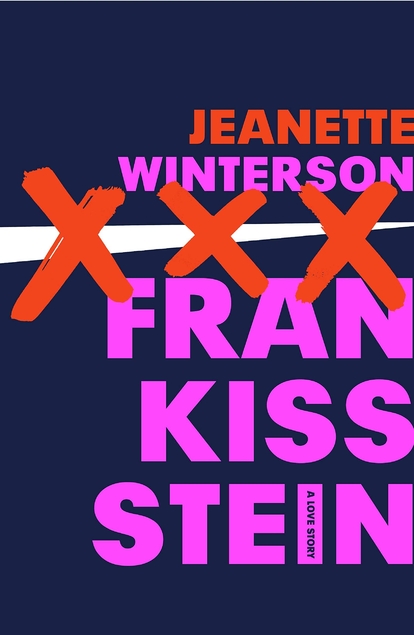
Frankissstein: A Love Story, by Jeanette Winterson, is just that: a love story.
What kind of love story, though, is the question. Love between whom? Love for what? That’s the question at the core of it.
The book is divided between two main intertwined narratives: the first set in history, that of young Mary Shelley, as she sparks with inspiration to pen the novel Frankenstein. The second narrative takes place in the near future, following Ry Shelley, a transgender doctor, and their journey alongside the mysterious man they have fallen in love with: Victor Stein. Victor, who is seeking to overcome death, not through stitching and reanimating a corpse, but with AI technology. Accompanying them are their parallels from both times: Lord Byron, the poet becomes Ron Lord, the sex-bot inventor/dealer (ha!); Dr. Polidori, Byron’s physician, becomes Polly D., a writer for Vanity Fair, and Claire Clairmont, Mary Shelley’s stepsister and Byron’s mistress, who becomes just Claire, a religious woman.
It’s a novel that was, largely, more philosophy than plot. Winterson’s stories are usually such — literary fiction; my all-time favorite book is her The Stone Gods — but this read almost like a thesis on what makes us human, the future of humanity, death, what our souls might be (if we even have one), gender, a smidge of socialism, reality, the ethics of AI/robotics, feminism… it was a lot packed into 344 pages. The interwoven narratives kept the book flowing, as did Winterson’s clever writing, as usual; though I did wrestle with choices she made, especially where Ry was concerned, choices that felt like amateur, insensitive mistakes. Overall, I loved Mary Shelley’s story more than I loved the pseudo-sci-fi story, even (or maybe because) I knew what happened in her life, tragedies and all. It was just the telling that varied. For me, that was where the love story shone through the brightest. Mary’s love and grief and curiosity were so well threaded together that she came alive on the page better than all the others, I felt, and was (re)animated for a little time with nothing more than a spark of imagination.
Frankissstein certainly isn’t Winterson’s most successful work, by any means, in my opinion, and unfortunately ended up feeling more like something like a work in process than a final product. And it definitely is no stellar crash-course in Trans 101; Ry is not understood by the characters that surround them in the narrative, which makes it challenging to see if they are understood by their author (who could have – should have – used non-binary instead of hybrid to describe them in-text), and so you feel for them, seemingly as displaced in the world as Dr. Frankenstein’s creation; a parallel, too, that perhaps is not the most kind; however, there is a great wealth of history of the queer and the creation, the queer and the monster. But the analysis one can pull from the text doesn’t fully make up for the discomforting wade through transphobia, and so if you’re interested in Winterson’s LGBTQ works rather than her musings on the human condition, another one of her earlier novels or her autobiography might be a better place to begin.
Winterson, Jeanette. Frankissstein. Grove Press, 2019.

